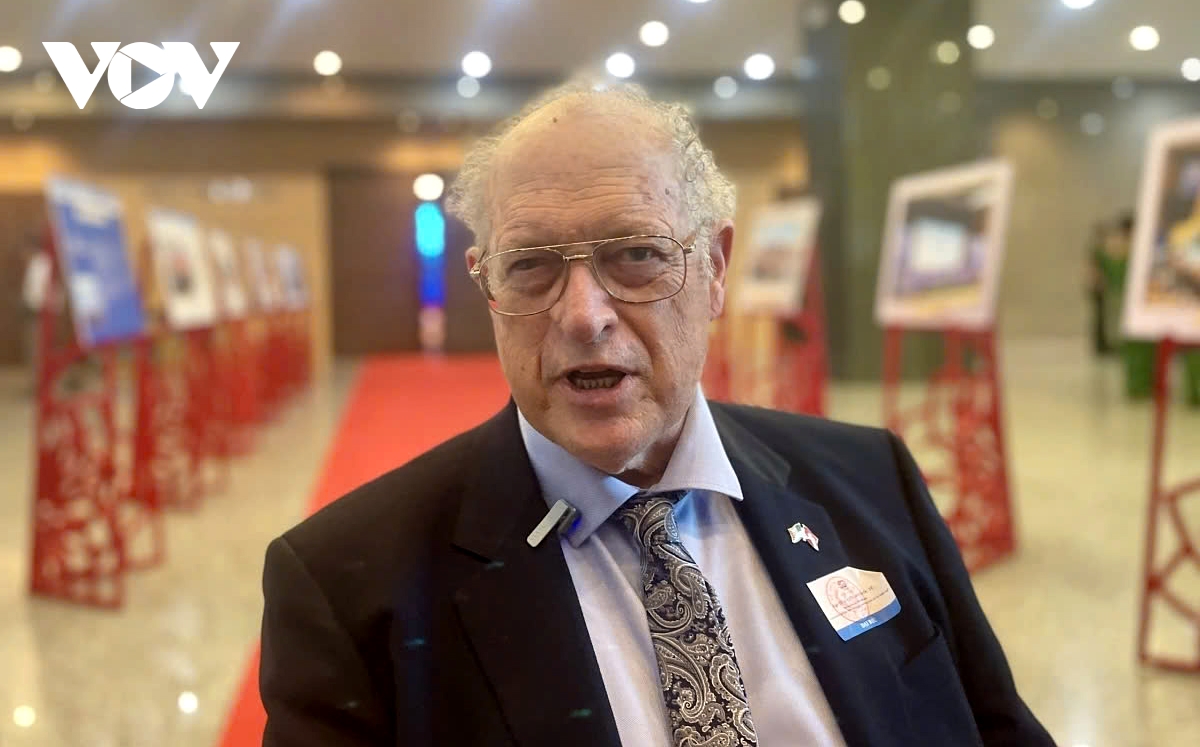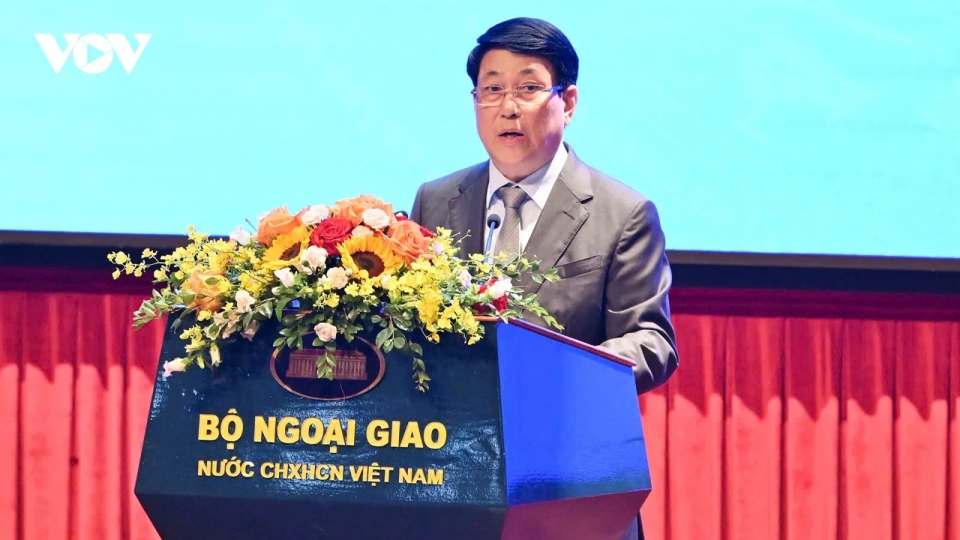Vietnam can be a trusted mediator on global stage, says American peace activist
VOV.VN - John McAuliff, executive director and founder of the Fund for Reconciliation and Development (FRD), has said Vietnam has the potential to act as a reliable mediator among nations in a multipolar world at present.

McAuliff was speaking in an interview granted to VOV.VN on the sidelines of an international conference on Vietnams peace diplomacy in Hanoi on April 23, sharing his deep reflections on the role of people-to-people diplomacy, the normalisation of US-Vietnam relations, and Vietnam’s growing potential on the global stage.
At the international conference, McAuliff made a presentation highlighting Vietnam’s prospects as a mediator in international diplomacy. He emphasised that the country’s historical experience, diplomatic balance, and trust earned on the global stage uniquely position it to contribute to conflict resolution and peace-building efforts worldwide.
He praised Vietnamese diplomats for their professionalism, vision, and strategic thinking. He particularly singled out a video message by Madame Binh (former Vice President Nguyen Thi Binh signed the 1973 Paris Peace Accords) to the conference, on the vital role of comprehensive diplomacy, both official and people-to-people, in ending war and fostering peace.
He called such diplomacy ‘soft power’ which was evident in the changing relationship between the American and Vietnamese people before and after the Paris Peace Accords.
According to the peace activist, the post-war period from 1975 to 1995, before the official normalisation of ties, was marked by deep skepticism between the two governments and their people. Convincing Americans to support closer relations with Vietnam was not easy at first.
However, he said, consistent efforts by non-governmental organisations, veteran groups, humanitarian projects, and especially educational exchanges, including early aid programmes and later the Fulbright scholarships, played a vital role in bridging the gap and laying a solid groundwork for normalisation of the relationship (1995) and upgrade to a comprehensive strategic partnership (2023).
When being asked about Vietnam’s global potential, McAuliff expressed his strong belief that the country could become a reliable mediator and leader at the United Nations, given its balanced relationships with both sides of global divides like the United States and Cuba.
In today’s dangerous multipolar world, Vietnam has the opportunity to be a peacemaker and bridge-builder, he said.
McAuliff also highlighted Vietnam’s diplomatic skill in balancing relations with major powers like the US, China, Japan, India, and Russia.

Reflecting on the US-Vietnam relationship at present, McAuliff said he believes it is now deeply rooted and resilient. He opined that this relationship is no longer just strategic; it is deeply personal, adding his family and friends all have connections to Vietnam.
Even though there are rough patches, such as trade tensions during the Trump administration, he expected the strong foundation would last for decades to come. He also emphasised the growing educational ties, with thousands of Vietnamese students continuing to study in the United States.
During the interview, McAuliff reflected on the dramatic transformation he has witnessed in Vietnam since the end of the war in 1975. He recalled that when he first arrived in Hanoi on April 30, 1975, the day the war officially ended, the city was in a state of hardship - no electricity, deserted streets, and clear signs of a country emerging from conflict.
But over the years, the peace activist observed extraordinary development, not just in major cities like Hanoi, Da Nang, and Ho Chi Minh City, but also in rural and remote provinces. He also acknowledged Vietnam’s economic growth, modernisation, and urban expansion, which have been remarkable. He also noted the inevitable consequences of fast-paced development like air pollution, traffic congestion, and strain on infrastructure - challenges that many developed countries, including the US, faced during their own growth booms decades earlier.




